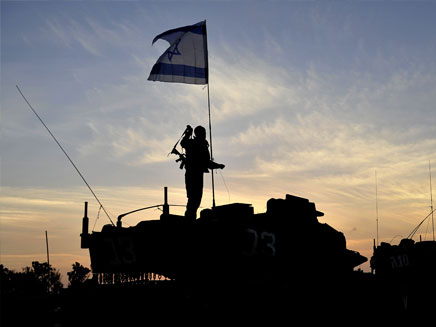In January 2024, at the end of his first round of reserves in the Gaza Strip, S. still thought of continuing to serve in the reserves elsewhere, but realized that his wife and children needed him, as well as at work. So with no choice he returned home. But when S. tried to return to his routine, he postponed the visit to the family doctor.
About a month and a half later, the family doctor frantically sent him for an examination. At that time, strong pains in the area of the testicles began to attack S. “The pain was so strong that I fell asleep in the middle of the day for ten hours,” he emphasizes the seriousness of the situation, “I helped with the security of the settlement where I live because there were alerts, but the pain was too strong, I was unable to function.” S. went to the emergency room.
He came to the Bilinson Hospital for treatment, where it turned out that he was suffering from stage 3 testicular cancer, on the verge of stage 4, with a metastasis in the large intestine of an abnormal size of 11 cm that caused a hole in the duodenum. At the hospital, he underwent surgery to remove the testicle by Dr. Daniel Keder , and required four rounds of chemotherapy in the oncology hospitalization department at the Davidoff Center, which is directed by Dr. Victoria Neiman. Thanks to the treatments, the metastasis shrunk to a size of 1.1 cm and S’s chances of recovery are set to be good.
The reservist who fought in Gaza emphasizes that his greatest difficulty is actually missing the reserve rounds: “I don’t remember when the pain started, but it became a monster because of which I gave up two weeks with friends in Gaza, and I missed the second round and the next round with them. This is the hardest part for me not to return with my team and not to fight with them.”
Dr. Raz Motei, the oncologist who treats S. at the Davidoff Center in Bilinson, emphasizes that testicular cancer starts from the testicle and climbs up: “It really goes up and up and in this case caused the rare lump in size. The fear in such a situation is infection or bleeding.” Dr. Mutai emphasizes the necessity of testing for early detection and that such testing saves lives: “S.’s story is an example that it is important to pay attention to the signs that may indicate cancer, even in times of war when we tend to pay less attention to matters Medical – early detection of cancer is critical to the chances of cure.”
